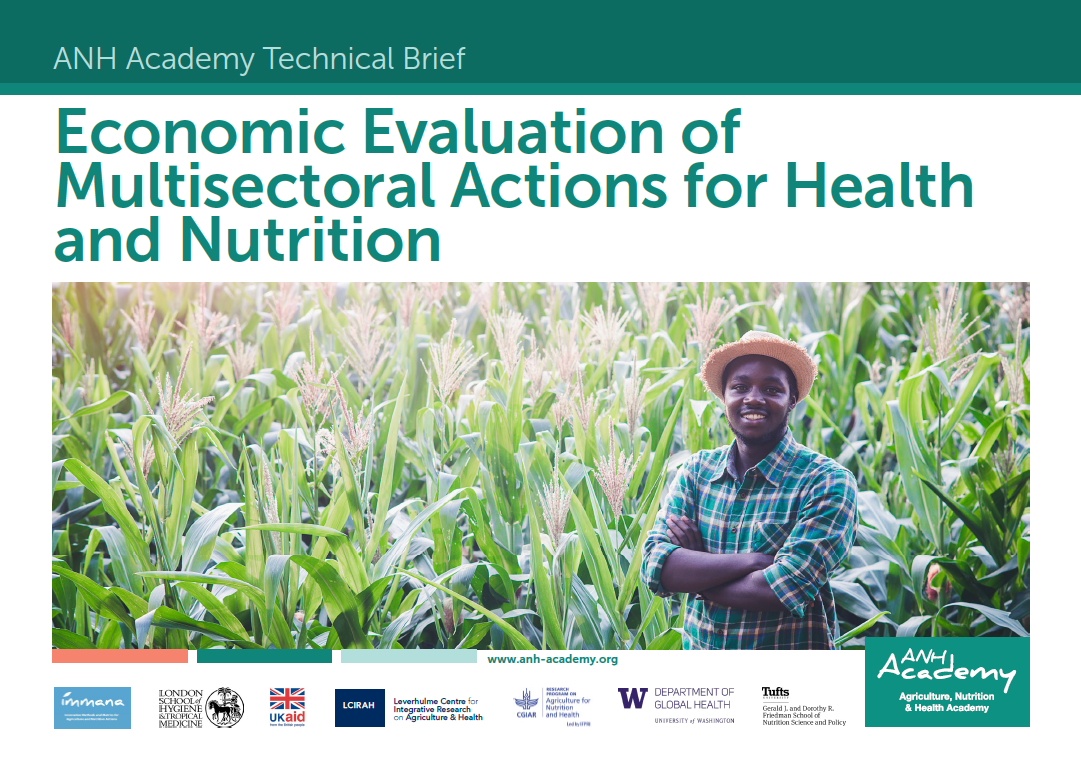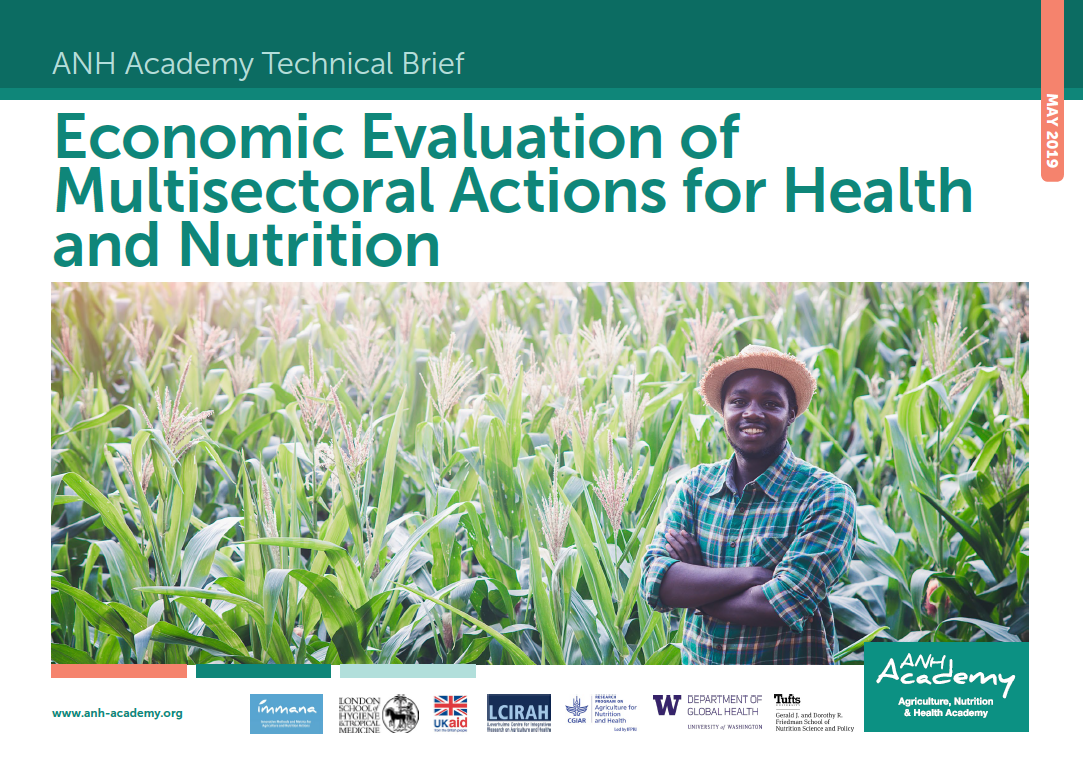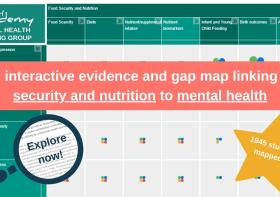Economic Evaluation Working Group
Details
The Economic Evaluation Working Group (2017-2019) convened experts using economic methods to evaluate multisectoral strategies to improve diet quality and nutrition outcomes through agricultural development, education and rural development or other nutrition-sensitive strategies.
The role of economic evaluation, whether it is done ex-ante or ex-post, and whether it concerns cost-effectiveness or cost-benefit analysis, is to help guide nutrition policy by identifying which interventions best meet the goals of decision-makers seeking to improve food systems by reducing undernutrition and overconsumption of unhealthy foods, as well as improve the food system to improve nutrition.
The group aimed to assess what type of information on costs and benefits is needed to support agrifood strategies, and identify current and improved methods for generating such information. The objectives of the group were:
- To define and understand how evidence on effectiveness, costs and cost-effectiveness are used to inform investments, resource allocations, policies and program design in the agriculture sector, since there are multiple sectors (private, public and civil society) involved in the production, distribution and consumption of agriculture produce.
- To review current approaches for estimating costs, benefits, cost-efficiency and cost-effectiveness of scaling up agrifood strategies to improve food systems, food environment and nutrition and health outcomes?
- To produce a summary of current gaps and challenges related to current approaches.
- To suggest additional approaches that might help quantify the costs and benefits of agrifood strategies, including new/refinements to existing methods that would help make research in this area more robust and/or replicable.
- To develop a common approach for assessing costs and consequences (benefits) across the range of agrifood strategies to improve agriculture health and nutrition, tailored to different use case scenarios.
- To identify needs and opportunities for extending research on economic evaluation of agrifood strategies to promote health and nutrition in low and middle income countries
Publications


Uptake by researchers
Building on the work of the Economic Evaluation Working Group, the SEEMS-Nutrition Project aims to apply improved methods and research for economic evaluations of multisectoral and food systems strategies to improve health and nutrition. University of Washington’s Department of Global Health, the International Food Policy Research Institute (IFPRI), Helen Keller International (HKI) and Results for Development (R4D) have come together to partner on the SEEMS-Nutrition Project, with funding from the Bill & Melinda Gates Foundation. Improving and standardizing the information on costs and benefits of scaling up integrated multisectoral strategies for health and nutrition will allow for a more comprehensive comparison of individual interventions or packages and policy levers to address healthy food systems, dietary intake, and improved nutritional status.
- SEEMS-Nutrition Project 2-pager
- SEEMS-Nutrition Tools Brief
- New York Academy of Sciences Nutrition Modeling Consortium (NMC)
Members
Coordinators:
- Carol Levin, Clinical Associate Professor, Global Health, University of Washington
- William Masters, Professor, Tufts University Friedman School of Nutrition Science and Policy
Group members:
- Aulo Gelli, Research Fellow, IFPRI
- Helen Harris-Fry, Research Fellow, London School of Hygiene & Tropical Medicine (LSHTM)
- Suneetha Kadiyala, Associate Professor of Nutrition Sensitive Development, London School of Hygiene & Tropical Medicine
- Sofia Kalamatianou, Research Assistant, London School of Hygiene & Tropical Medicine
- Jan Low, Sweetpotato Scientist & World Food Prize Laureate 2016, International Potato Center
- Chloe Puett, Independent Consultant, and Research Faculty, Program in Public Health, Department of Family, Population, and Preventive Medicine, Stony Brook University
- Jolene Skordis-Worrall, Reader in Health and Development Economics, University College London
- Steve Vosti, Adjunct Professor, Agricultural and Resource Economics, University of California, Davis
- Joe Yates, Research Fellow - Academy Research Uptake Manager, London School of Hygiene & Tropical Medicine (LSHTM)
See some of their ANH Academy member profiles below:


















